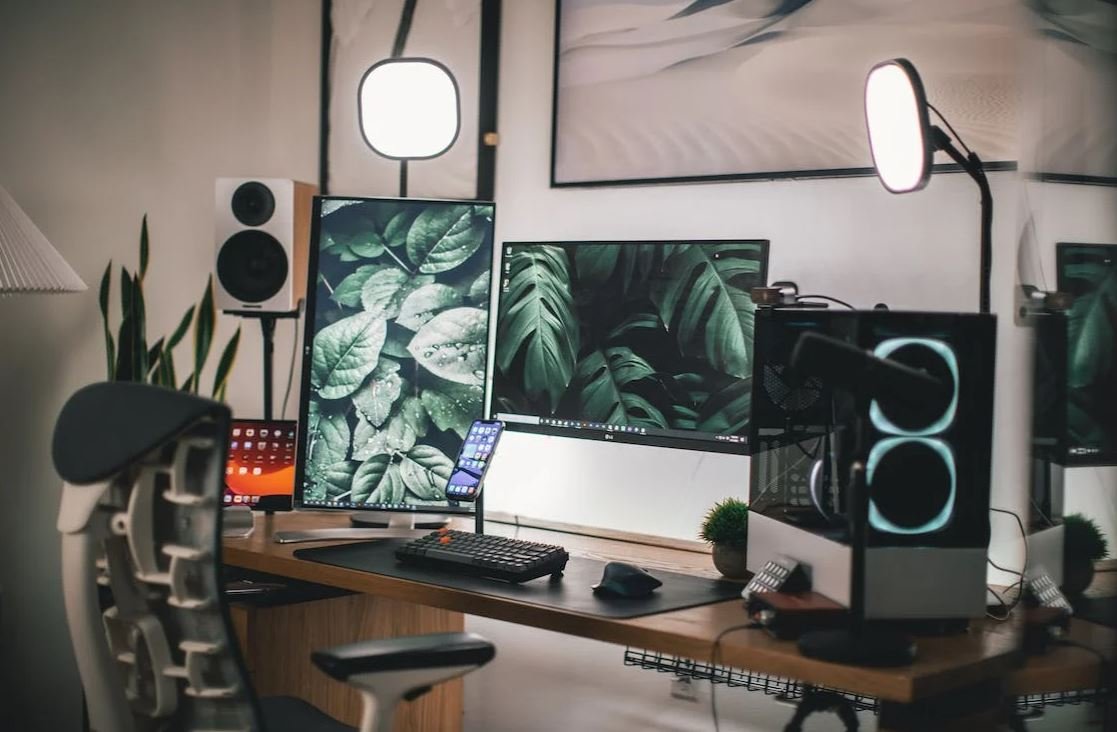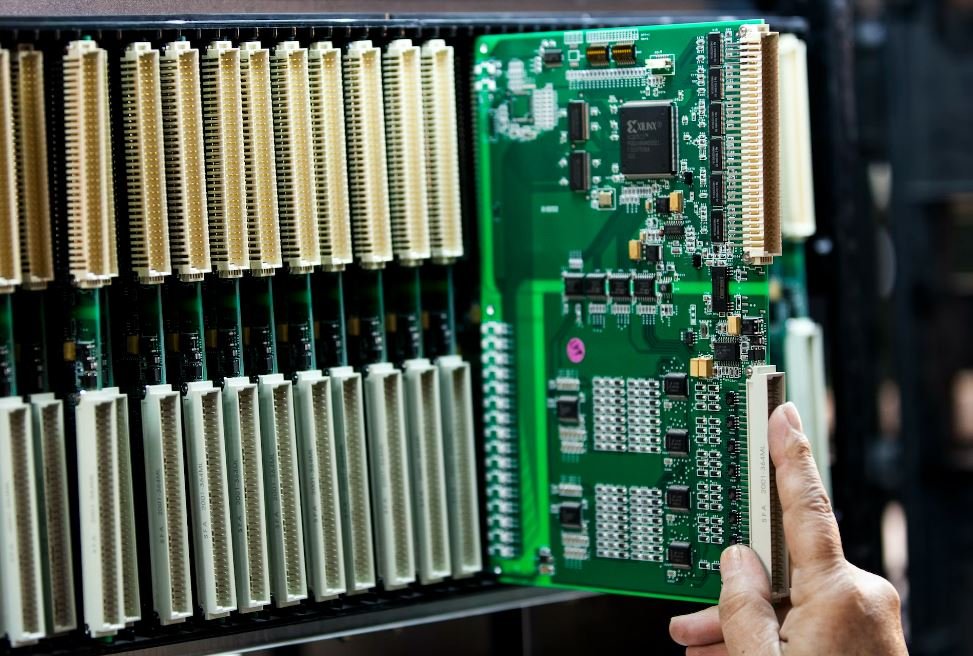Generative Music in Bitwig: Enhancing Your Music Production
Generative music is a fascinating concept that allows musicians and producers to create music that evolves and develops on its own, through algorithms and automated processes. In this article, we explore how Bitwig Studio, a popular digital audio workstation (DAW), enables you to create unique and ever-changing compositions using generative techniques.
Key Takeaways
- Generative music uses algorithms to create evolving compositions.
- Bitwig Studio is a versatile DAW that supports generative music production.
- Generative music unlocks endless creative possibilities.
- Automation and modulation are crucial tools in generative music creation.
- Experimentation and exploration are key to harnessing the full potential of generative music.
Introduction to Generative Music
*Generative music* is a unique approach to music production where, instead of manually creating every note and arrangement, musicians rely on algorithms and systems to generate music that evolves and changes over time. By establishing rules and parameters, artists can set the framework within which the generative music system operates, resulting in compositions that are always new and unpredictable.
*Generative music* challenges the traditional linear and repetitive nature of music compositions, offering an exciting alternative that captures the essence of randomness and nonlinearity, creating compositions that surprise and delight both the creator and the listener.
Bitwig Studio: The Perfect Platform for Generative Music
Bitwig Studio is a powerful digital audio workstation that provides an ideal platform for diving into the world of generative music. With its extensive audio manipulation capabilities, modular design, and advanced automation features, Bitwig Studio empowers musicians and producers to experiment freely and create unique generative music compositions.
One interesting feature of *Bitwig Studio* is its **Modulator system**, which allows you to create intricate automated interactions between various parameters, giving your generative music endless possibilities for evolution and variation.
Automation and Modulation: Key Tools for Generative Music
Automation and modulation are essential tools for adding movement and dynamics to generative music compositions. Bitwig Studio provides a wide range of automation options, allowing you to control parameters such as volume, panning, filters, and more, in real-time.
In generative music, *automation* can be used to introduce gradual changes and subtle variations to different elements of the composition, creating an evolving and dynamic musical experience.
| Generative Music Techniques | |
|---|---|
| Technique | Description |
| Probability-based sequencing | Assigning probabilities to different musical events to allow for randomness and unpredictability. |
| Rule-based algorithms | Setting up a set of rules and conditions to guide the generative music system and influence musical outcomes. |
| Markov chains | Using statistical models to predict the next musical event based on the previous ones, creating a sense of continuity. |
Experimentation and Exploration: Unlocking Generative Music’s Potential
To fully harness the potential of generative music, it is crucial to embrace experimentation and exploration. Bitwig Studio‘s intuitive interface and flexible workflow encourage musicians to push boundaries and discover new musical territories.
*The possibilities are endless*, as generative music allows for infinite variations and surprises. By letting go of preconceived notions of composition, musicians can unlock their creativity and create fascinating soundscapes that were previously unimaginable.
| Generative Music Benefits |
|---|
| Enhances creativity and inspires new musical ideas. |
| Offers a fresh approach to music composition and production. |
| Creates unique and ever-changing compositions. |
Embrace Generative Music: Unleash Your Creativity
Generative music in Bitwig Studio opens up a world of creative possibilities for musicians and producers. By harnessing the power of algorithms and automated processes, your compositions can evolve and surprise you, leading to unique and captivating musical experiences.
Whether you’re an experienced musician seeking new avenues for creative expression or a beginner looking to delve into the exciting world of generative music, Bitwig Studio provides the necessary tools and environment to explore and create timeless and ever-evolving compositions that push boundaries and captivate listeners.

Common Misconceptions
Misconception 1: Generative music cannot be composed or controlled
One common misconception about generative music is that it cannot be composed or controlled, leading to the belief that it is purely random or chaotic. However, this is far from the truth. While generative music is often created using algorithms or systems that generate sound patterns autonomously, it can still be composed and shaped by the artist.
- Generative music allows for the creation of complex compositions that evolve over time.
- Artists can incorporate their own musical ideas and preferences into the generative music system.
- Various parameters and rules can be set to guide the generative system in a specific musical direction.
Misconception 2: Generative music lacks emotional depth
Some people believe that generative music is devoid of emotional depth or human connection because it is created by machines. However, this is a misconception that overlooks the immense potential of generative music to evoke emotions and resonate with listeners.
- Generative music can be programmed to produce a wide range of moods, from calm and meditative to energetic and intense.
- Artists can infuse their own emotions and intentions into the generative music system, giving it a personal touch.
- Listeners often experience unique and unexpected emotional responses to generative music due to its dynamic and ever-evolving nature.
Misconception 3: Generative music is only for experimental or avant-garde genres
Another common misconception is that generative music is exclusively suited for experimental or avant-garde genres. While generative techniques have undoubtedly been embraced by these genres, the applications of generative music are far more diverse and expansive.
- Generative music can be used in mainstream genres such as pop, electronic, and ambient, adding new dimensions to familiar styles.
- Artists from various musical backgrounds can employ generative techniques to create fresh and innovative compositions.
- Generative music can be adapted to fit different contexts, including film soundtracks, video game scores, and interactive installations.
Misconception 4: Generative music is the same as computer-generated music
Generative music is often confused with computer-generated music, but these two terms represent distinct approaches. While computer-generated music typically refers to music composed entirely by computer algorithms, generative music involves a more interactive and collaborative process between the artist and the generative system.
- Generative music can be created using both human input and algorithmic processes, allowing for a fusion of human creativity and machine capabilities.
- The artist plays an active role in shaping and directing the generative system, making it a truly collaborative endeavor.
- Generative music is often characterized by its ability to evolve and adapt in real-time, responding to changes in the environment or user input.
Misconception 5: Generative music replaces traditional composition and performance
There is a misconception that generative music is intended to replace traditional composition and performance practices. However, generative music should be seen as a complementary tool that can enhance and expand traditional approaches, rather than a complete replacement.
- Generative techniques can be integrated into traditional composition workflows, opening up new avenues for experimentation and exploration.
- Artists can combine generative and traditional approaches to create hybrid compositions that merge the best of both worlds.
- Generative music can challenge traditional notions of authorship and blur the boundaries between the composer and the listener.

Artists Using Bitwig Studio for Generative Music
Bitwig Studio, a digital audio workstation, has become a popular tool for creating generative music. This article explores some notable artists who have utilized Bitwig Studio to push the boundaries of music creation. The following table showcases a few of these artists and their notable contributions.
| Artist | Genre | Notable Work |
|---|---|---|
| Aphex Twin | Electronic | “Syro” album |
| Kaitlyn Aurelia Smith | Experimental | “The Mosaic of Transformation” album |
| Holly Herndon | Avant-garde | “Platform” album |
| Trent Reznor | Industrial | “Ghosts I-IV” album |
Benefits of Using Generative Music in Bitwig Studio
The integration of generative music techniques within Bitwig Studio has revolutionized the creative process for many musicians. This table highlights some of the key benefits that arise from incorporating generative music concepts in Bitwig Studio:
| Benefit | Description |
|---|---|
| Enhanced creativity | Generative music techniques stimulate creative ideas by introducing unpredictability and randomness into the composition process. |
| Unique musical patterns | Generative algorithms generate intricate and evolving patterns that are difficult to replicate through manual composition. |
| Time efficiency | Generative music tools automate certain aspects of composition, saving time and allowing artists to focus on other creative elements. |
Notable Features of Bitwig Studio for Generative Music
Bitwig Studio offers a diverse range of features specifically designed for generative music composition, fostering innovation and experimentation. The following table summarizes a few noteworthy features that make Bitwig Studio a powerful tool for generative music:
| Feature | Description |
|---|---|
| Modulators | Bitwig Studio provides a multitude of modulators such as LFOs and randomizers, enabling dynamic modulation of various parameters. |
| Probability-based tools | Probability features allow users to introduce chance and randomness into the composition, creating evolving musical sequences. |
| Micro-pitch and note expression | Bitwig Studio’s advanced micro-pitch capabilities allow for intricate pitch manipulation, offering a wide range of tonal possibilities. |
Generative Music in Bitwig Studio: Advantages and Limitations
While Bitwig Studio provides a powerful platform for generative music, it is important to consider both its advantages and limitations. The following table outlines some of these factors:
| Aspect | Advantages | Limitations |
|---|---|---|
| Creative experimentation | Bitwig Studio encourages artists to explore new sonic territories by offering intuitive generative music tools. | Artists may become overly reliant on generative techniques, potentially hindering manual compositional skills. |
| Endless variations | Generative music opens up possibilities for infinite variations and evolutions, keeping compositions fresh and intriguing. | Excessive randomness may result in chaotic and dissonant musical outcomes, requiring careful fine-tuning. |
Commercial Success of Generative Music in Bitwig Studio
Generative music composed using Bitwig Studio has garnered critical acclaim and commercial success. This table showcases a selection of generative music albums produced using Bitwig Studio that achieved widespread popularity:
| Album | Artist | Release Year |
|---|---|---|
| “Gaussian Planet” | Max Cooper | 2017 |
| “Cyclic” | Stephan Bodzin | 2020 |
| “Cluster Flies” | Matthew Herbert | 2015 |
Bitwig Studio for Collaborative Generative Music Projects
The collaborative nature of Bitwig Studio enhances possibilities and fosters collective exploration of generative music. The following table presents artists who have collaborated on generative music projects using Bitwig Studio:
| Collaboration | Artists |
|---|---|
| “Fractured Reality” | Jon Hopkins, Ólafur Arnalds |
| “The Ambient Saga” | Brian Eno, Ryuichi Sakamoto |
| “Binary Fusion” | Autechre, Ryoji Ikeda |
Hardware Integration in Bitwig Studio for Generative Music
Bitwig Studio‘s compatibility with external hardware provides an expanded sonic palette for generative music creation. This table highlights notable hardware integrations:
| Hardware | Description |
|---|---|
| Elektron Digitakt | Digitakt’s sequencer and parameter locks seamlessly integrate with Bitwig Studio, offering tactile control over generative music. |
| Korg Volca series | Bitwig Studio seamlessly supports MIDI integration with Korg Volca series, allowing generative music enthusiasts to combine software and hardware. |
Acclaimed Live Performances Using Generative Music in Bitwig Studio
Generative music produced in Bitwig Studio has been showcased in stunning live performances around the world. The table below highlights some awe-inspiring performances:
| Performance | Artist | Event |
|---|---|---|
| “Immersive Strings” | Nils Frahm | Berlin Electronic Music Festival, 2018 |
| “Sonic Odyssey” | Oliver Koletzki | Tomorrowland, 2019 |
| “Electroscapes” | Elizabeth Hode | Mutek, 2017 |
Bitwig Studio has undeniably transformed the way artists approach generative music, enabling them to unleash their creativity and explore new sonic realms. By incorporating innovative features, collaborating with fellow musicians, and embracing external hardware integration, Bitwig Studio continues to shape the future of generative music.
Frequently Asked Questions
Q: What is generative music?
Generative music refers to music that is created or composed by a system or algorithm. It often involves the use of random or semi-random processes to generate musical elements such as melodies, rhythms, and harmonies.
Q: How does generative music work in Bitwig?
In Bitwig, generative music can be created using various techniques such as sequencing, automation, and modulation. Users can utilize the built-in tools and features to generate unique and ever-changing musical patterns and structures.
Q: Can I use my own samples in generative music compositions with Bitwig?
Absolutely! Bitwig allows users to import and use their own samples in generative music compositions. Whether you want to use recorded sounds, field recordings, or any other kind of audio files, you can integrate them seamlessly into your generative music projects.
Q: Are there any specific devices or modules in Bitwig designed for generative music?
Yes, Bitwig offers several devices and modules that are specifically designed to facilitate generative music creation. For example, the “Note FX Layer” device enables the creation of complex generative harmonies, melodies, and chord progressions.
Q: Is it possible to control the randomness and variability in generative music compositions with Bitwig?
Yes, Bitwig provides extensive control over the randomness and variability in generative music compositions. Users can utilize features like randomization, probability settings, and modulation to achieve the desired level of variation and unpredictability in their music.
Q: Can generative music compositions in Bitwig be recorded and exported as audio files?
Absolutely! Bitwig allows users to record and export their generative music compositions as audio files. This enables you to share your creations with others or use them in other audio production workflows.
Q: Can generative music created in Bitwig be further edited and manipulated like traditional compositions?
Yes, generative music created in Bitwig can be further edited and manipulated just like traditional compositions. You can adjust individual parameters, add or remove musical elements, and refine the composition to your liking.
Q: Can I use generative music techniques in combination with traditional composition methods in Bitwig?
Definitely! Bitwig allows users to combine generative music techniques with traditional composition methods. You can use generative elements alongside recorded audio, MIDI sequencing, and other traditional composition approaches to create unique hybrid music compositions.
Q: Can I find pre-made generative music presets or templates in Bitwig?
Yes, Bitwig provides a wide range of pre-made generative music presets and templates. These presets serve as starting points and can be used as inspiration or building blocks for your own generative music compositions.
Q: Can I integrate external hardware or controllers with Bitwig for generative music production?
Yes, Bitwig offers extensive support for integrating external hardware or controllers for generative music production. You can connect and control external synthesizers, drum machines, MIDI controllers, and other hardware devices to enhance your generative music workflow.




